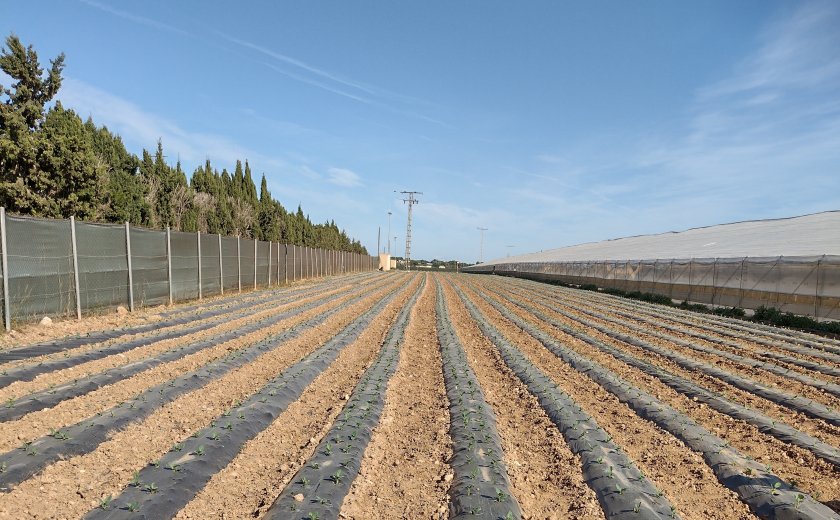
Bioplastics marketed as 'biodegradable' are remaining in soils for longer than the two-year industry standard, a scientific study has found.
Researchers found some 3,000 microplastics per gram of sediment in samples taken from ditches surrounding agricultural fields.
This is evidence that microplastics accumulates in the environment, which is a violation, according to the Wageningen University study, in the Netherlands.
The main reason for the microplastic pollution in soils is the use of plastic mulch used to warm up the soil and to prevent weed growth.
Biodegradable plant-based mulches were specifically developed to quickly degrade in soil.
However, this study indicates that these biodegradability claims are open to serious question.
Every year in the EU, 80 million kilograms of mulch film are being used, of which is 5% biodegradable - amounting to 4 million kilograms.
Industry standard EN 17033 states that biodegradable plastic mulches should be biodegraded in soils by 90% within two years time. No regulation related to degradation in sediment of ditches is in place.
The study found high concentrations of microplastics derived from bio-degradable plastic mulches that did not degrade in two years time under field conditions, which, according to the study, violates standard EN 17033.
Samples were taken at eight flower farms in the Netherlands and at eight coriander farms in Spain, with the study finding some 48 different types of microplastics across the tested samples.
Some 61 percent of the microplastics detected were found to be fossil fuel-based, while the remaining 39 percent were bio-based.
Campaigners say the study raises serious questions about the biodegradability credentials of bio-based plastics.
And they have called for tighter regulations on the environmental claims made by bioplastic manufacturers.
Lead researcher Dr Esperanza Lwanga said the results were 'worrying', showing the need for more studies and further measures.
“The concentrations of microplastics in agricultural soils and in ditch sediments are high, and vary according to the sampling place."
Maria Westerbos, director of Plastic Soup Foundation, which commissioned the study, noted that biodegradable plastic mulches were increasingly used by farmers.
"Mulch is sold to farmers with the false promise of degradability within two years. They can simply be left on the field and ploughed under’ producers claim under false promises.”
“This study shows that these mulches risk contaminating the soils in which the food we eat is grown.”
